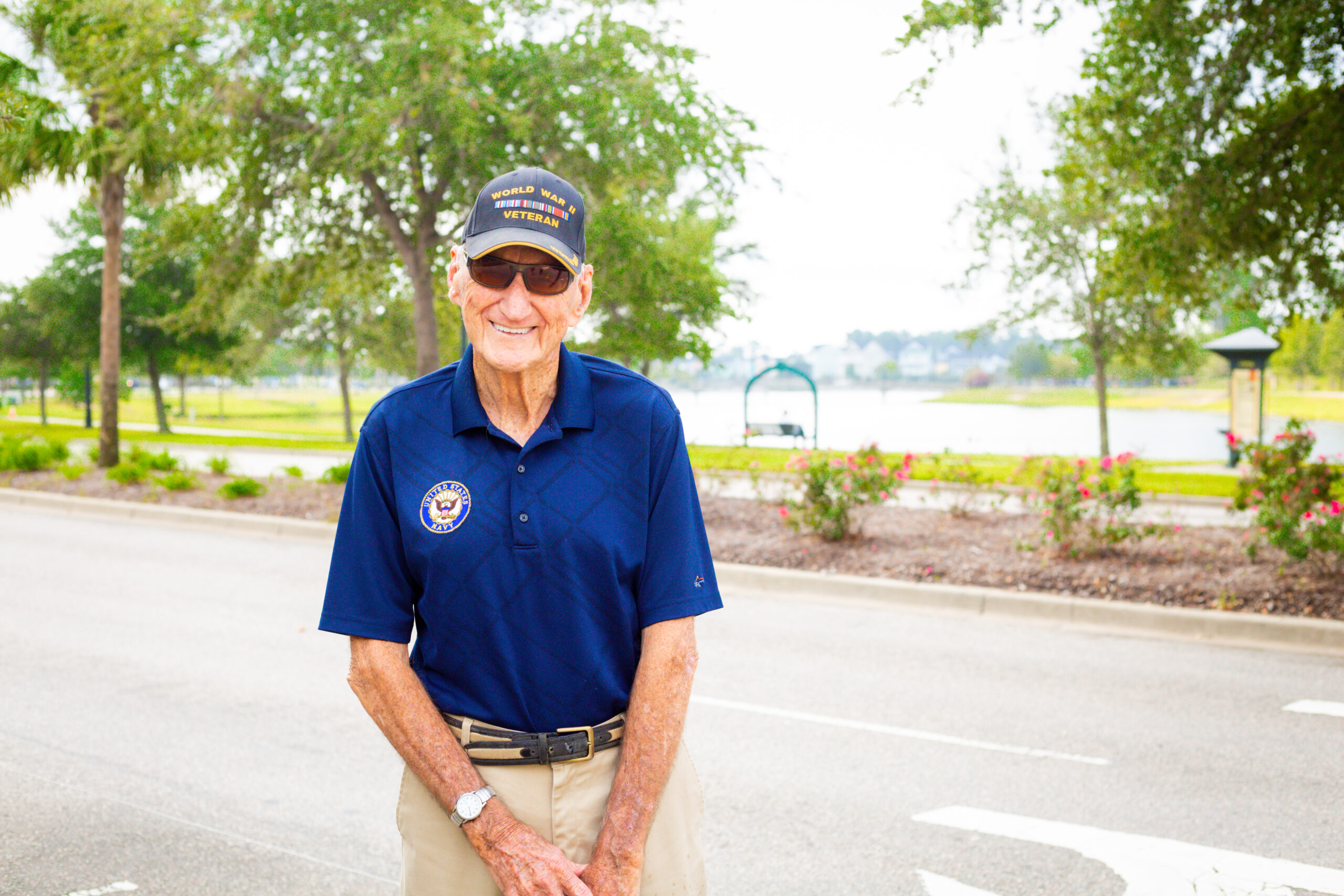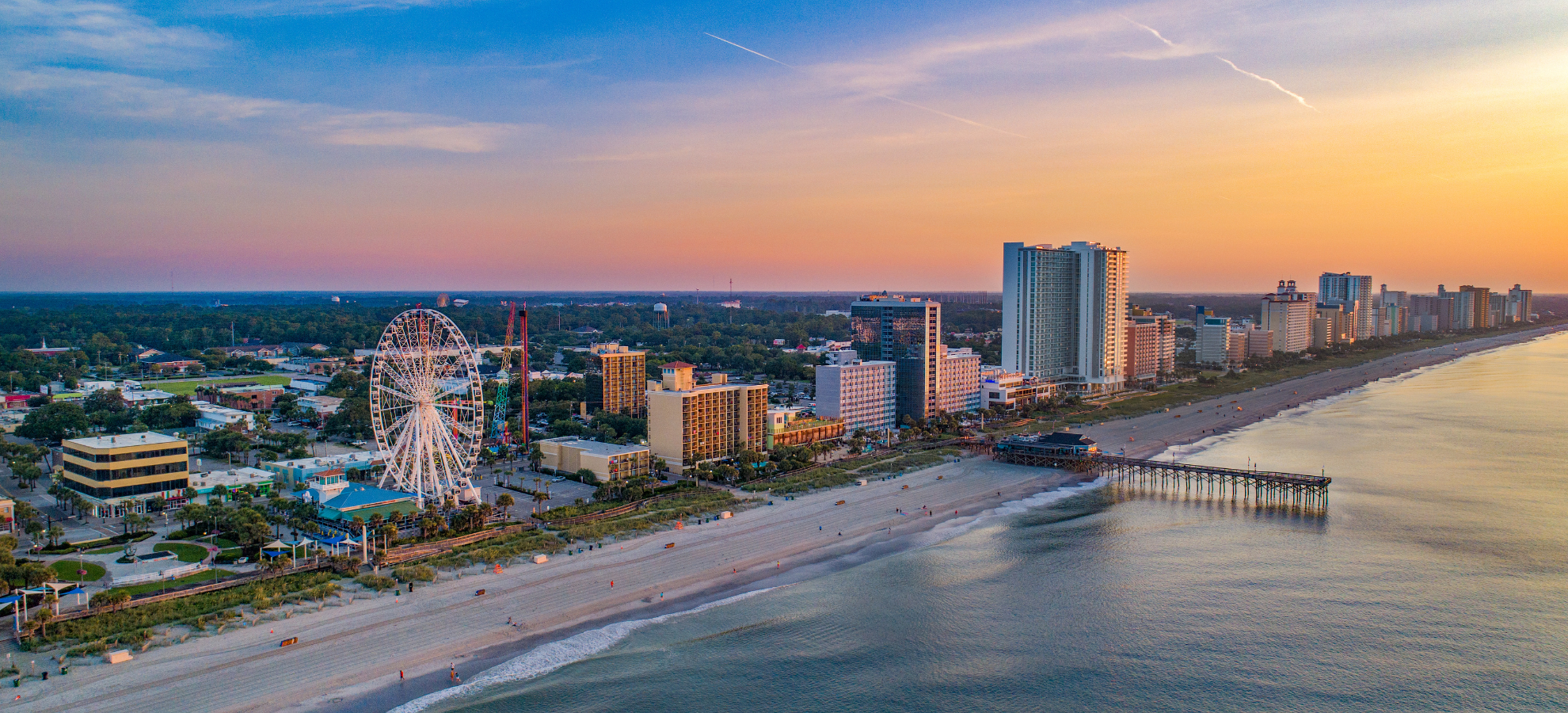WWII Navy Veteran in the Philippines
Celebrate Our Veteran gives voice to the stories of the U.S. military veterans living amongst us. The actions of these brave and dedicated people, who have served our country both in active military duty as well as administrative positions, have and continue to contribute to the protection and preservation of us and our country.
We hope that this section of our paper is an opportunity for our community to hear and see veterans with new eyes, and for veterans to receive recognition and honor for their experiences and life journeys.
This month’s Celebrate Our Veteran recounts the story of Jack Platt, as told in his own words. This is the final chapter of a two-part series continued from last month. Click here to read Part 1.
by Melissa LaScaleia
“As a guard, you’re standing on the edge of the jungle. You’re trying to make yourself look as small as possible. It’s dark, and it’s not quiet. There were all kinds of noises in the jungle— birds, and monkeys, and you stood there and listened and listened. But the moment it stopped— that was the moment you dreaded. You could hear a pin drop then, and you knew something was out there.
There wasn’t any organized resistance on the island that late in the war. But to put it in perspective, you have to remember, that the Japanese never gave up, they never surrendered— it was against their religion to be captured. The ones that weren’t killed, they would hide and go deep into the jungle trying to live with the natives. And the natives were very aboriginal, and very fierce. One of them could sneak down and ambush you, to steal food or supplies. It was pretty hairy, but nothing serious ever happened to me.
There were large pontoon barges anchored offshore that were also loaded with ordinance, (bombs and ammunition). We also had to guard these barges. One day, I was returning from one of these barges in a small watercraft, when something exploded on the bough, and hurled me into the water. I have no idea to this day what happened. It could have been a floating mine.
I swam ashore and was taken to an aide station. My ears were ringing— they had been punctured, and I couldn’t hear anything. It was eventually found that the sea water had infected my inner ears, so I was sent to a large field hospital in Takloban, the capital of Leyte, for better treatment.
At first the ringing in my head drove me a little crazy, but after 75 years, you learn to accept it. Your body adjusts pretty well. If I hadn’t accepted it, I’d have gone crazy. I’m not the only one like this, thousands of ex-GIs struggle with this.
So, several weeks later, I was being sent back to my unit, standing on the air strip waiting for a ride across the Gulf. It was 21:10. August 10. A radiogram was sent to all ships at sea and all installations stating that the Japanese would surrender if we would protect their Emperor.
Here I was, two weeks from my 18th birthday. At that very moment, I pointed my weapon in the air and I emptied the clip.
Every night, it was total darkness there. You weren’t even allowed to light a cigarette at night. I was standing right next to the water in the Gulf. There had to have been 50-60 ships in the harbor. And all at once, all of the ships put on their lights and emptied all their guns in the air.
With the guns, every 3rd strip, called a tracer bullet, is red. And when they emptied their guns, those bullets formed streaks of red into the air. From the shore, I saw thousands and thousands of red streaks. It was quite a sight for a 17-year-old kid, and it’s a sight I’ll never forget. But you’re not a kid anymore. You grow up pretty fast over there.
I stood there all night long because everything was canceled. Then I walked down to the shore and arranged with the officer to get on a small ship going back to Samara. It was 40 or 50 miles back to Samara. When I got back to my unit, everything was all jubilation.
But there was a catch for me. The U.S. government had come out with a point system that designated who was allowed to return to the United States and when.
You accrued a point for every year of your age; 10 points if you were married; 10 for your wife, 10 for each child you had, and ¼ point for every month you had spent oversees. As soon as you reached 40 points, you would be sent back as soon as possible.
The problem was, I was seventeen years old and unmarried. So I was kept on that island to guard the Naval depot because it took months and months and months to ship all the supplies and weapons back to the United States.
So we sat there September, October, November, December— and everybody is going home, and we’re still sitting there. And we’re hearing how everybody is celebrating back home. Every ship that sailed into LA, San Francisco, NY, was being greeted by throngs of people cheering, and the people are getting showered with flowers and wreaths.
Finally, in January 1946, we were put on a ship, and we were going home. Along the way, we ran into a hurricane at sea— we got tossed around like a cork, and had to make an emergency stop in Spain for two weeks waiting for the repair. We finally sailed into San Francisco, and we were so happy.
It was a gloomy day. And nothing; nobody was there to greet us. It was a real let down.
They put us on a bus and took us to a processing facility where they told us to put all our sea bags down while we showered and they deloused us. While in this process, somebody broke into our sea bags and stole everything.
We had all kinds of things in there— I had a nice pearl handled bow knife, a Japanese pistol, pearl necklaces— it was all gone. Everything was stolen by one of our mates.
I returned to Boston and to nobody. My father and sisters weren’t there. I went back to school to finish my high school diploma.
I went to Boston University and the Bryant and Stratton Business Institute to complete my accounting background. I took a lot of courses. I went twelve months a year, to catch up with everybody. We didn’t stop for summer.
Years later I wound up being vice president and general manger of a company in Redding, Massachusetts.”
















